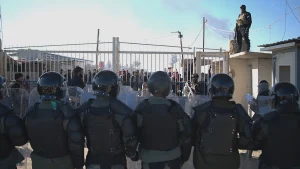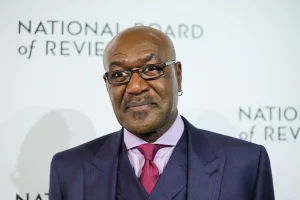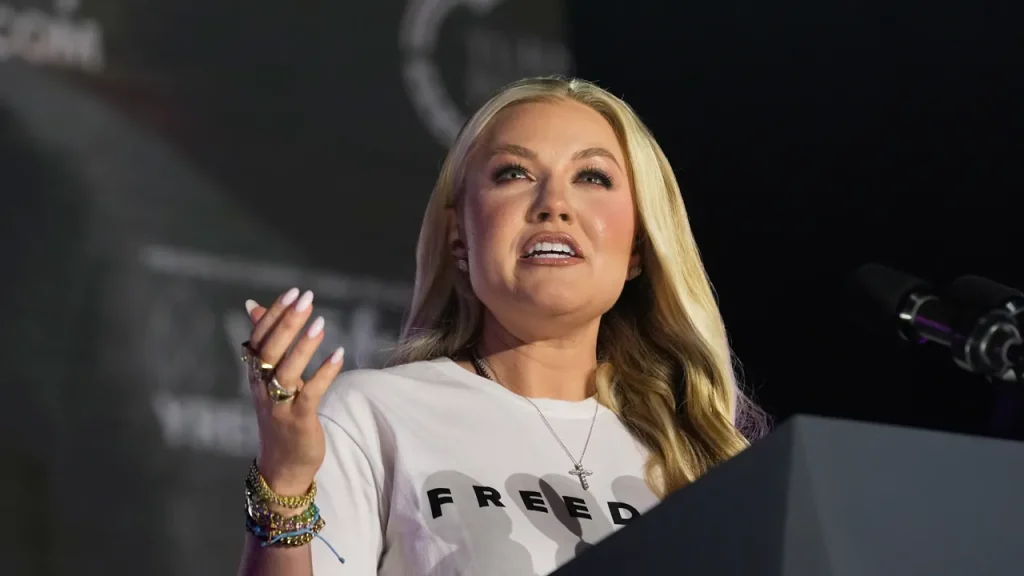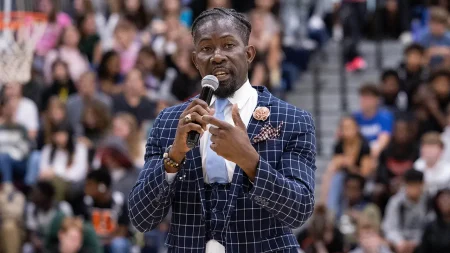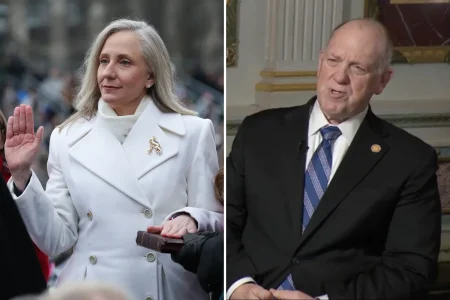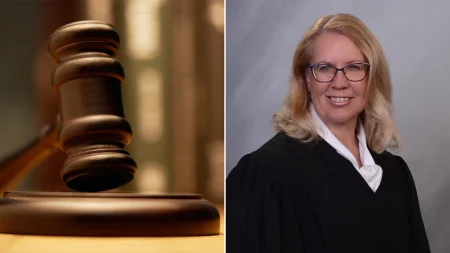Erika Kirk’s Emotional Return to Campus Life: A Journey of Courage and Reclamation
Seven weeks after the tragic murder of her husband Charlie Kirk, Erika Kirk made her first Turning Point USA campus appearance at the University of Mississippi, stepping onto the stage to face a packed house of supportive students. The emotional weight of the moment was immediately clear as she acknowledged how difficult it was to watch the video tribute that preceded her speech. “Being on campus right now for me is a spiritual reclaiming of territory,” she explained, finding profound symbolism in the timing of her appearance. In these difficult weeks since losing Charlie, Erika described coming to understand that evil forces don’t simply target individuals but seek to claim their territory and influence. With remarkable strength, she shared how she could hear Charlie’s voice in her heart encouraging her: “Go reclaim that territory, babe. Go — the battles that God’s love conquers.” This spiritual framing of her mission provided not only personal comfort but a powerful message to the students gathered before her.
Addressing a sea of young faces, many wearing the same ‘Freedom’ T-shirt she wore at the podium, Erika expressed deep gratitude for their presence. “You have no idea how helpful it is to have all of you in my life, because you help me feel even more deeply connected to my husband,” she told them with genuine appreciation. She reminisced about Charlie’s authentic interest in students at every Turning Point USA event, how he would pause to learn their names, their fields of study, and the campus issues they faced. Charlie wanted each student to know he was personally invested in them, their chapters, and their schools. This connection with students was, in Erika’s words, “a pulse point for him.” She challenged the audience to “earn your voice” and dubbed Generation Z “the courageous generation,” urging them to make Charlie proud through their actions and commitment to principles.
The personal toll of Charlie’s murder was evident as Erika shared her grief journey with remarkable candor. “I lost my friend. I lost my best friend,” she said simply, putting into stark perspective any fears students might have about standing up for truth. She revealed for the first time how grief had affected her most intimate spaces, describing how for weeks she couldn’t bear to enter the bedroom she had shared with Charlie. “I used to sprint from the opening door into the bathroom and sprint out,” she admitted, painting a vivid picture of the physical manifestations of grief. When she finally managed to sleep in their bed, she chose his side—a choice that unexpectedly revealed a powerful message that Charlie saw each morning upon waking: a framed quote reading “They will be known by the boldness of their faith.” This insight provided both comfort to Erika and inspiration to the audience.
Erika further humanized her late husband by sharing intimate details of his daily practices, revealing three questions Charlie had written down and asked himself every day: “What is something I can do for someone today? What is something I can do to add value to the world today? How can I honor God today?” These questions, which she described as “his action points for courage,” offered the audience practical wisdom for developing their own moral fortitude. The profoundly personal glimpse into Charlie’s private values system resonated deeply with the students. “What death amplifies even more is that you only get one life. So live like it matters,” Erika urged, distilling painful wisdom from her experience. She encouraged them to “Love your family fearlessly. Love your spouse fearlessly. Love this country. Defend her and serve our God.” Most importantly, she emphasized personal responsibility: “Don’t think that it’s someone else’s role to do it. You do it.”
The emotional climax of her address came when Erika framed the present moment as a potential turning point for everyone in attendance. “This moment can either be your breaking point or your wake-up call,” she stated with quiet intensity, deliberately echoing the name of the organization her husband had built. The audience responded with enthusiastic applause, recognizing both the wordplay and the deeper truth of her challenge. Before introducing Vice President JD Vance, whom she described as someone who “understands the fight that we’re up against and can articulate that in a way that transcends race and background,” Erika acknowledged the irreplaceable nature of her husband’s presence while looking toward the future. “There will never be another Charlie,” she said with finality, “but I know he’d be proud to see us here tonight.” Her words served as both a tribute to Charlie’s legacy and a passing of the torch to a new generation of activists.
Throughout her appearance, Erika Kirk demonstrated remarkable resilience in the face of unimaginable loss. By transforming personal tragedy into a call for courage and commitment, she honored her husband’s memory while establishing her own voice as a leader. Her willingness to share intimate details of her grief journey—from avoiding their bedroom to finally sleeping on Charlie’s side of the bed—humanized both her late husband and the mourning process itself. The students of Ole Miss witnessed not just a widow’s sorrow but a powerful example of how to face adversity with grace, purpose, and an unwavering commitment to reclaiming what matters most. In choosing to step back into public life at a university campus, Erika embodied her own message about courage and living purposefully in the face of loss, showing that even in our darkest moments, we can find meaning and mission that transcends personal pain.
